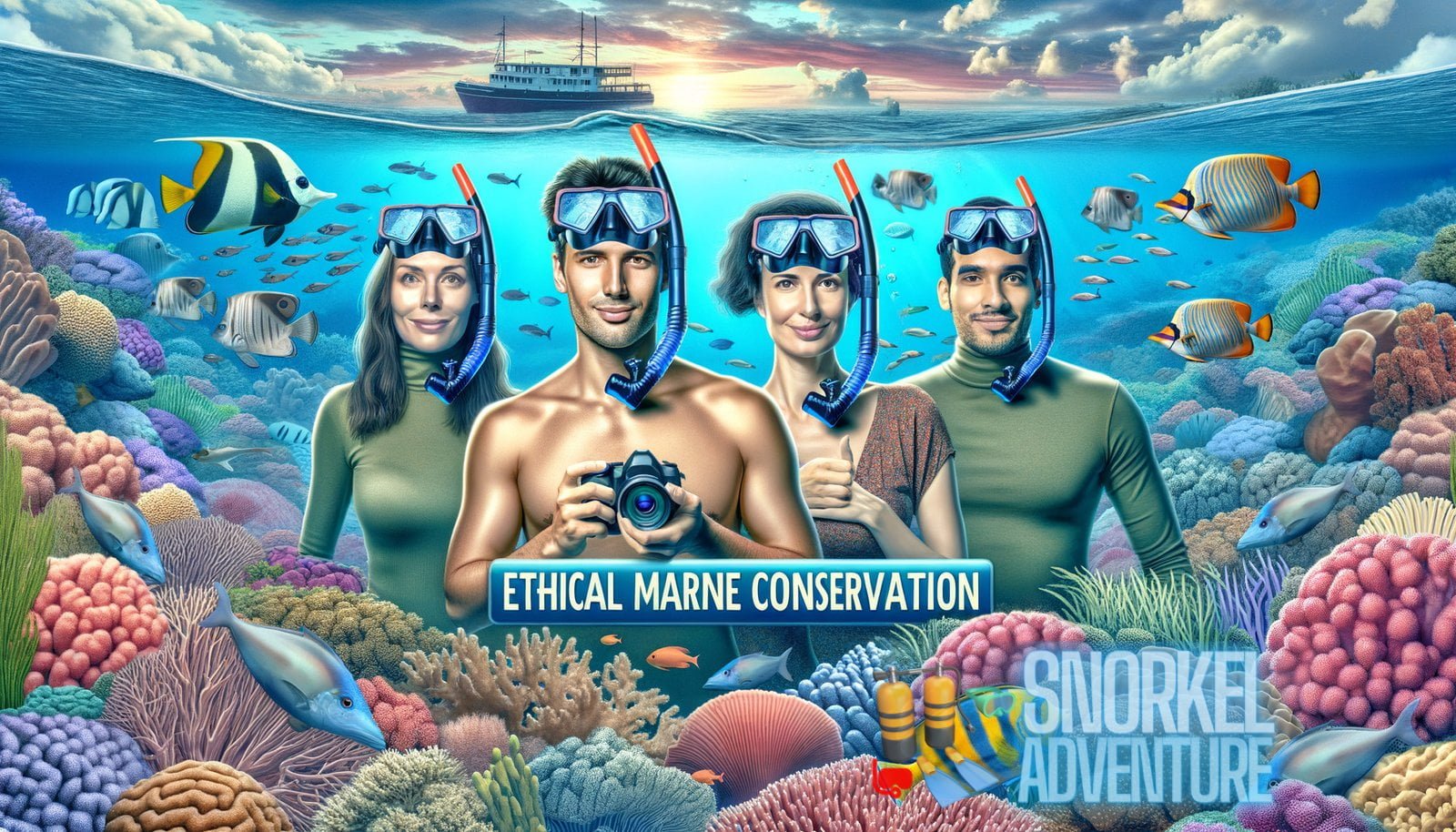Introduction
Snorkeling is a popular recreational activity that allows individuals to explore the mesmerizing underwater world without the need for scuba diving equipment. It provides an opportunity to witness the abundant marine biodiversity up close and personal. However, like any human activity, snorkeling can have an impact on the delicate ecosystems that lie beneath the surface of the ocean. This article aims to investigate the impact of sustainable snorkeling on marine biodiversity and explore ways to mitigate any negative effects. By understanding the importance of snorkel impact, we can work towards preserving the fragile ecosystems for future generations.
The Importance of Marine Biodiversity
Marine biodiversity refers to the variety of life present in the oceans and other bodies of saltwater. It is crucial for maintaining the health and balance of marine ecosystems. Here are some reasons why marine biodiversity is of great importance:
- Diversity: The oceans are home to a wide range of species, from tiny plankton to large marine mammals. This diversity helps stabilize ecosystems and ensures the survival of various species.
- Food resources: Marine biodiversity provides a vital source of food for both humans and other marine organisms. Fishing, both recreational and commercial, heavily relies on healthy fish stocks.
- Ecological services: Marine ecosystems play a crucial role in providing essential ecological services, such as carbon sequestration, oxygen production, and coastal protection. These services benefit both marine and terrestrial ecosystems.
- Economic value: Healthy marine ecosystems are also economically valuable. Industries such as tourism, fisheries, and pharmaceuticals heavily rely on diverse marine ecosystems for their sustainability.
The Impact of Unsustainable Snorkeling on Marine Biodiversity
While snorkeling is generally considered to be a low-impact activity, certain practices can have a negative effect on marine biodiversity. It is important to understand and minimize these impacts to ensure the long-term sustainability of snorkeling and marine ecosystems. Here are some key areas of concern:
Physical Damage
Snorkeling activities can inadvertently cause physical damage to coral reefs, seagrass beds, and other fragile marine habitats. It is estimated that around 11% of the world’s coral reefs have been permanently damaged due to human activities, including snorkeling and diving. Here are some ways in which physical damage can occur:
- Kicking or standing on coral reefs: Coral reefs are delicate and easily damaged. Snorkelers must take care not to touch, step on, or kick the corals while exploring the reef.
- Anchor damage: Improper anchoring of boats can cause significant damage to coral reefs. Snorkelers should choose operators who use appropriate anchoring techniques or opt for snorkeling in areas without coral reefs.
- Collecting souvenirs: Some snorkelers may be tempted to collect shells, coral fragments, or other marine organisms as souvenirs. This can disrupt the delicate balance of marine ecosystems and harm the biodiversity.
Chemical Pollution
Certain chemicals present in sunscreens, lotions, and other personal care products can be harmful to marine life. When snorkelers apply these products before entering the water, these chemicals can wash off and enter the marine environment. The following chemicals can have detrimental effects on marine organisms:
- Oxybenzone: This widely used chemical in sunscreens has been shown to cause coral bleaching and disrupt the development of coral larvae.
- Octinoxate: Another common sunscreen ingredient, octinoxate can damage coral DNA and impair the reproduction of marine organisms.
- Triclosan: Found in some antibacterial soaps, triclosan can harm aquatic organisms and disrupt the balance of marine ecosystems.
To minimize the chemical impact of snorkeling, it is recommended to use reef-safe sunscreens that are free from harmful chemicals. These sunscreens are formulated to protect your skin without causing harm to the marine environment.
Sustainable Snorkeling Practices
Fortunately, there are several ways in which snorkelers can minimize their impact on marine biodiversity and practice sustainable snorkeling. By following these practices, we can ensure that future generations can also enjoy the wonders of the underwater world:
Choose Responsible Tour Operators
When planning a snorkeling trip, it is important to choose tour operators that prioritize marine conservation and follow sustainable practices. Responsible tour operators:

- Train their guides to educate snorkelers about the importance of marine biodiversity and the need for responsible behavior.
- Adopt sustainable snorkeling techniques that minimize physical damage to fragile marine habitats.
- Use eco-friendly boats and anchoring methods that ensure minimal impact on coral reefs.
Before booking a snorkeling tour, do some research to find operators with a strong commitment to marine stewardship.
Practice Respectful Snorkeling
By adopting respectful snorkeling practices, snorkelers can minimize their impact on marine biodiversity. Here are some guidelines to follow:
- Avoid touching or stepping on corals and other marine organisms.
- Maintain a safe distance from marine life and never try to ride, chase, or feed them.
- Do not collect souvenirs from the marine environment, as it disrupts the delicate balance of marine ecosystems.
- Use reef-safe sunscreens and avoid applying any chemicals that could harm marine life.
- Practice proper buoyancy control to avoid unintentional contact with the reef.
The Role of Snorkel Impact in Marine Stewardship
Snorkel impact plays a crucial role in the overall concept of marine stewardship. Marine stewardship refers to the responsible use and management of marine resources to ensure their long-term sustainability. By understanding the impact of snorkeling on marine biodiversity and adopting sustainable practices, we can actively contribute to marine stewardship. Some key aspects of snorkel impact in marine stewardship include:
Education and Outreach
Education and outreach programs play a vital role in promoting sustainable snorkeling practices and raising awareness about the importance of marine biodiversity. By educating snorkelers about the potential impacts of their actions and providing them with guidelines for responsible snorkeling, we can empower individuals to make informed choices and be responsible stewards of the marine environment.
Research and Monitoring
Continuous research and monitoring of marine ecosystems help scientists understand the impacts of snorkeling and other human activities. By collecting data on snorkel impact, researchers can identify trends, assess the effectiveness of conservation efforts, and develop strategies to minimize negative effects on marine biodiversity.
Eco-friendly Snorkeling Equipment
The development and use of eco-friendly snorkeling equipment can also contribute to marine stewardship. Snorkel gear made from sustainable materials and designed to minimize physical damage to marine habitats can help reduce the overall impact of snorkeling on marine biodiversity.
Collaboration and Partnerships
Collaboration among various stakeholders, including government agencies, environmental organizations, tour operators, and snorkelers, is essential for effective marine stewardship. By working together, these stakeholders can implement and enforce regulations, develop sustainable management plans, and raise awareness about the importance of preserving marine biodiversity.
Conclusion
Snorkeling offers a unique opportunity to explore the captivating world beneath the ocean’s surface. However, it is important to be mindful of the impact our actions can have on marine biodiversity. By adopting sustainable snorkeling practices, including choosing responsible tour operators, practicing respectful snorkeling, and using reef-safe sunscreens, we can minimize our impact on fragile marine ecosystems. Snorkel impact is not just a concern for individual snorkelers; it is a vital aspect of marine stewardship. By understanding and addressing the impact of snorkeling on marine biodiversity, we can work towards preserving these precious ecosystems for future generations to enjoy.
Embed Links: – An article available at https://snorkeladventures.site/environmental-considerations/marine-stewardship. – An article available at https://snorkeladventures.site/environmental-considerations/eco-snorkeling-the-key-to-preserving-marine-life-for-future-generations. External link: For more detailed information on the impact of snorkeling on coral reefs, you can visit the Wikipedia page on snorkeling.

